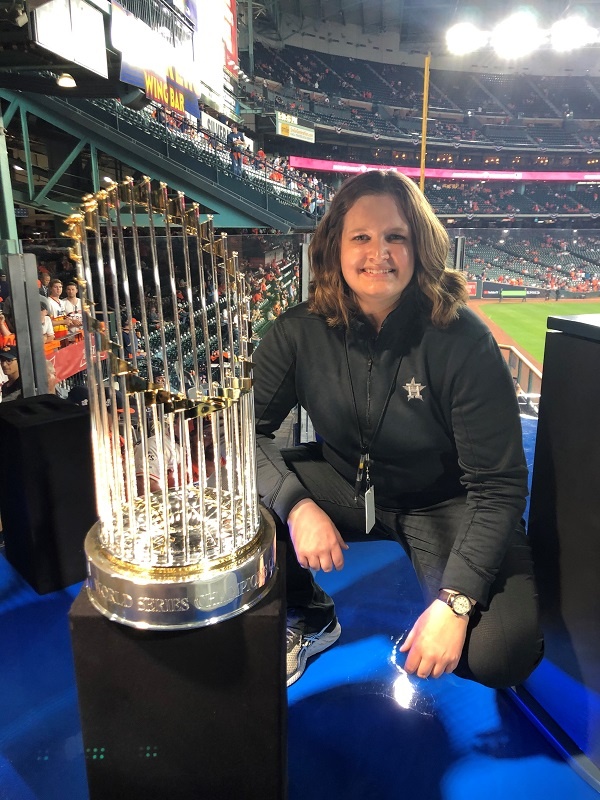Despite advances in accounting automation, demand for accounting talent is growing. According to a Glassdoor report, accounting and auditing are among the 15 jobs projected to grow most by 2026. But accounting has a problem: A lot of people think it’s just boring number-crunching. Emily Lado, accounting analyst for the Houston Astros baseball team, disagrees. We spoke with her to learn how young professionals like herself can find exciting opportunities in this in-demand field.
What do you do as an accounting analyst for the Houston Astros?
My main responsibilities are ticket accounting, retail accounting, sales tax, our 50/50 raffle, and our cash vault. Tickets are our biggest revenue source, so it’s my main focus. We have big revenues, but we’re not a big organization, so it can be a process to stay on top of it. The other big piece of my role is the cash vault. I have a staff of 10 who work during the actual games to give money to retail, our box office, marketing, and our raffle ticket sellers. Then as the game goes on, they’ll start to bring it back and my team checks it in, verifies the amounts, and creates the deposits.
The World Series trophy also gets stored in the vault. When it showed up, I thought it would just sit there. But immediately after we got it, people from MLB and Fox were asking to borrow it for pregame and postgame shows. I would coordinate with them to safely move it—always at inopportune times when the ballpark is full of people—by finding the most unoccupied backways to get it from the vault to center field and back. It was crazy, but super fun and a really cool experience.
When did you first become interested in accounting?
I first learned about accounting as a freshman in high school. I took a class on accounting basics and personal finance. From the beginning, it all felt very logical to me. The entire accounting cycle is a very logical process that flows from one thing to the next. It just made a lot of sense, and I wish it were taught to everyone because it’s such a valuable way to understand how businesses work.
What skills do you need to be successful in accounting?
You need to be detail oriented. You need to be able to dig into the data and when things aren’t adding up, you need to be able to look at the big picture to understand the entire process and pinpoint the problems. We also have so many different systems that don’t always talk to each other, so you need that detail-oriented mindset to pick up on their quirks.
What do you like most about working in accounting?
It’s a great way to get a whole picture of a company, but more importantly for me, a whole picture of a baseball team. When I watch a game, I see the guys on the field playing, all the signs in the outfield, the people in the stands, the people going to concessions, and all the different ways money is moving around the ballpark to drive our business. Then on the expenditure side, I’m thinking about the per diem money we give to our players, which is something I do with our cash vault. I look at their helmets and bats and think about how we’ve paid out those in the last couple of weeks. That’s what I love.
What advice would you give to someone seeking a career in accounting?
Find a position in an organization that they really care about. That’s going to make it so much more rewarding than doing accounting for the sake of accounting. After I decided I wanted to go into accounting, I immediately knew that I wanted to make that jump into sports and be part of a finance department for a sports team. So, I continually worked towards that. Whatever job you’re taking in accounting, view it as a way to develop the skills to land that dream job that fuels your passion.
To learn more about recruiting and retaining finance talent, closing skill gaps, developing high-potentials, and much more, see APQC's Developing Finance Talent Collection.
